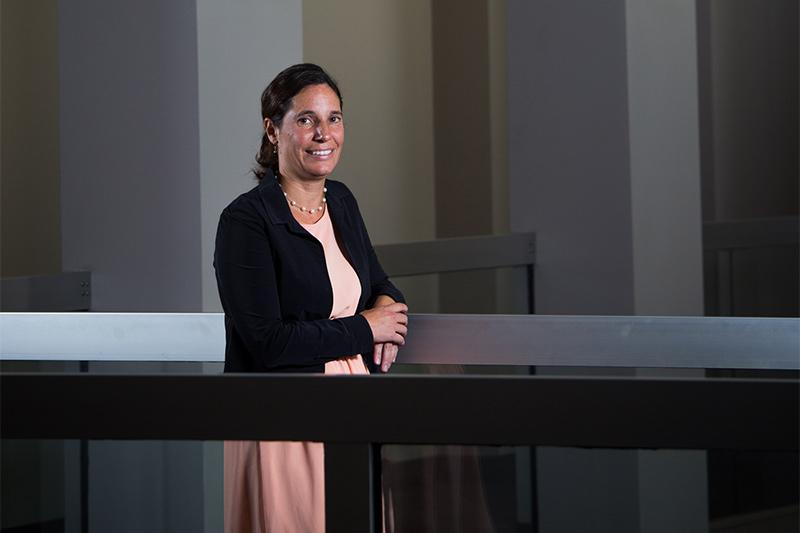MBA study finds national audience
Jennifer Merluzzi, an assistant professor at the A.B. Freeman School of Business at Tulane University, investigates what happens once MBA students leave the classroom.
Merluzzi, who earned her undergraduate degree at Tulane, collaborated with Columbia Business School professor Damon Phillips to study approximately 400 individuals graduating in 2008 and 2009 from a top-rated U.S. MBA program.
Merluzzi and Phillips found that specialization, typically encouraged as a career advantage, was not rewarded once graduates entered the job market.
“Employers would tell us that they would rather hire someone who demonstrated accomplishment across many areas.”
— Jennifer Merluzzi, assistant professor, A.B. Freeman School of Business
Recently featured in Harvard Business Review, their research found that graduates with specialized career profiles — based on experiences before, during, and after graduation from the program — faced worse job prospects including fewer offers and less compensation, compared to students with more generalist backgrounds.
“A specialist in our study was someone with a singular functional focus across activities,” said Merluzzi. “For instance, they worked in banking before the MBA program, concentrated in finance and joined banking clubs in school before taking a job in investment banking.”
By contrast, generalists had a broader background with experience across multiple functional disciplines.
“Employers would tell us that they would rather hire someone who demonstrated accomplishment across many areas,” said Merluzzi. “They saw these individuals as more flexible resources and future leaders in their organizations.”
Their research focus was on graduates specializing in investment banking, which is a common career track of MBAs, but also found similar effects in marketing and corporate finance.
“It’s not that specialization is going to be penalized in every market, but will when certain characteristics are in place,” said Merluzzi.
Those characteristics include strong signals of quality such as attending an MBA program with a rigorous admissions process, resumes that reflect the individual’s own choices, and many specialists competing for the same jobs.
“What we’re curious about next is whether this penalty continues once inside an organization.”

